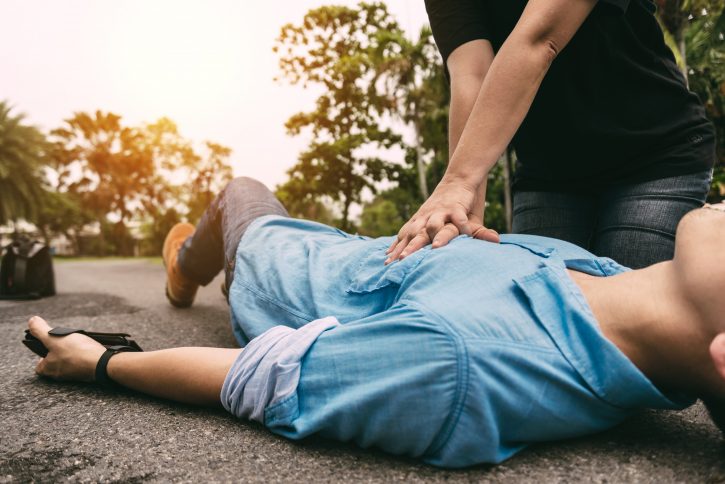
Have Heart: Your Bravery Can Save Lives
When it comes to a condition as deadly and unpredictable as sudden cardiac arrest (SCA), saving lives requires bravery, courage and swift action. And with nearly 350,000 cardiac arrests occurring outside of the hospital each year, we need you to become a hero.
Bystander intervention from neighbors, strangers and friends can double or triple the chance of a cardiac arrest victim’s survival. Unfortunately, emergency situations can inspire fear – and fear can make us freeze. Being aware, prepared and armed with the knowledge to act can give you the courage you need to save a life.
Once you learn CPR, you have to be ready to use it when cardiac arrest strikes. Here are five of the most common barriers to bystander intervention and why you shouldn’t let these stop you from jumping in to help:
Fear: I’m not sure this is an emergency. Maybe I should just wait.
- Fact: If the victim is not responding, does not have a pulse and is not breathing normally, it is an emergency. Act immediately.
Fear: I’m afraid CPR will hurt the victim. It’s better to wait for the professionals.
- Fact: The quicker a victim receives CPR, the better. If you wait for EMS, it may be too late to save a life. Don’t be afraid to start chest compressions: It may be their only chance of survival.
Fear: I might get sick from doing mouth-to-mouth.
- Fact: If performed immediately, hands-only CPR can be just as effective as conventional CPR in adults. This means you push hard and fast in the center of the chest without stopping to give rescue breaths.
Fear: I’m afraid the shock of the AED will hurt the victim.
- Fact: AEDs are safe and easy to understand. They do not shock the victim if it is not necessary. If the AED asks you to press the “shock” button, push it. You can rest assured you are doing the right thing.
Fear: I’m afraid to help because I might get sued.
- Fact: Good Samaritan Laws protect heroes like you. You will not face legal trouble for trying to save the life of a sudden cardiac arrest victim, even if they don’t survive.
Spread the Word and Empower Others
The more we encourage, educate and support one another, the more we can improve the outcomes for cardiac arrest victims. Tell your family, friends and coworkers about the importance of bystander intervention and empower them to act with confidence when an emergency strikes. You never know whose life you might be saving.
Learn more about becoming a hero in your community.
Community Heart Watch is dedicated to saving lives through training and awareness.
You can also download the PulsePoint AED app to locate defibrillators near you.